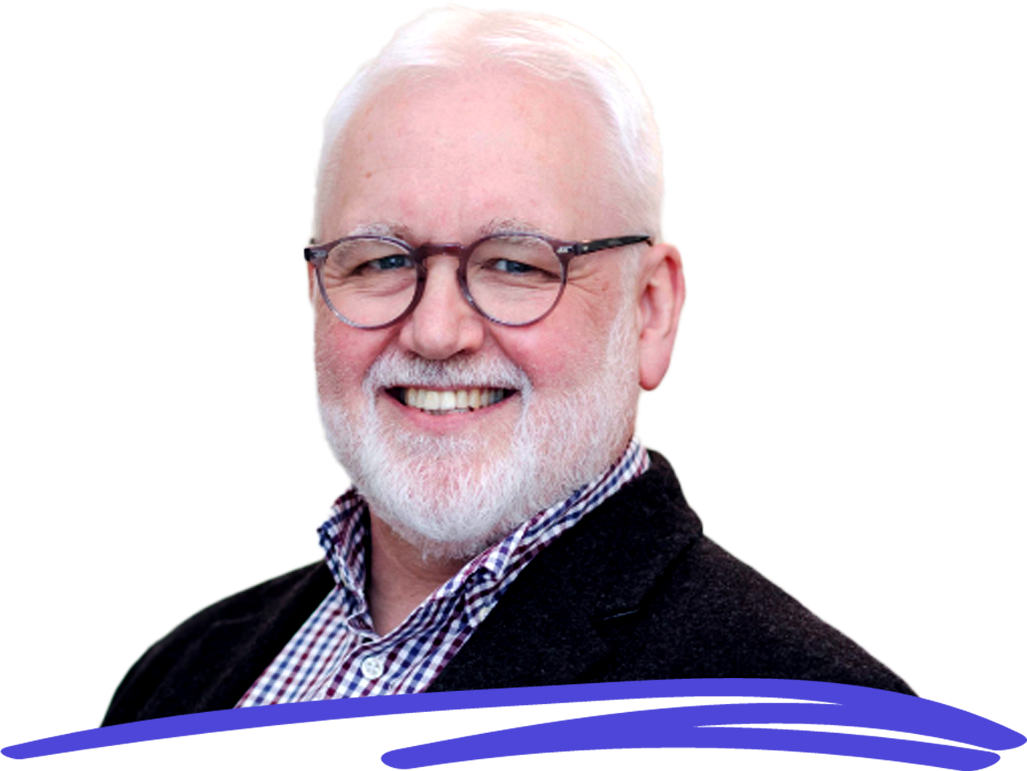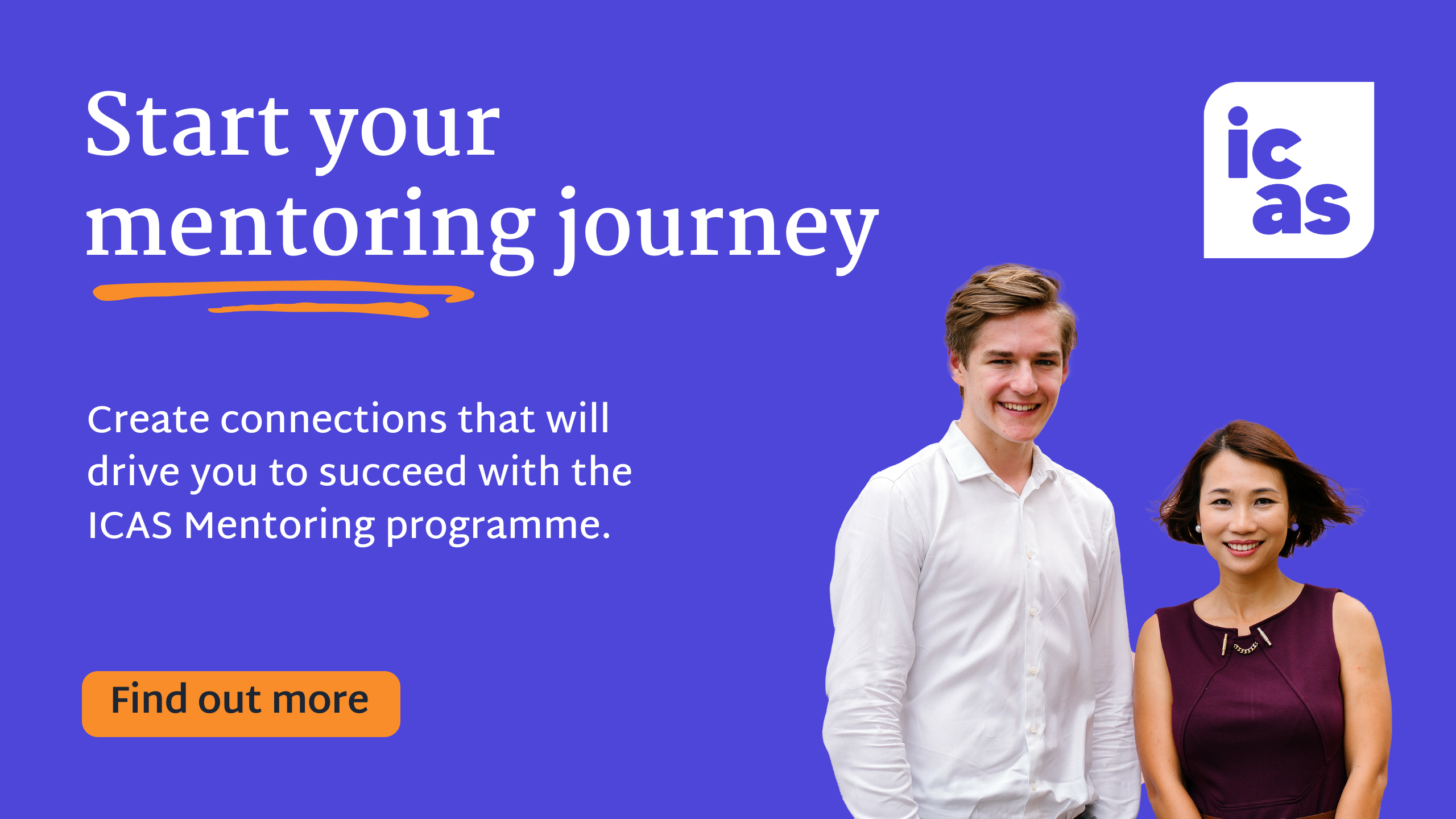THE NEXT CHAPTER

James Baird, Chair of the Shaping the Profession steering group, says ICAS’ new programme of activity is both a vital listening opportunity and a moment for accountancy to raise its collective voice
After retiring from full-time professional work – I’d previously been a managing partner at Deloitte – I did a part-time PhD in audit/partner decision-making. That prompted me to ask more questions about how the profession is working. Subsequently, having also been involved in several working groups with the institute as well as the Financial Reporting Council (FRC), I became chair of the ICAS Research Panel.
ICAS has been examining the long-term future of the profession, asking what society needs from chartered accountants and how we respond to those needs. We also want to build a profession that is more relevant, more valuable and hopefully more trusted by society. Accordingly, last November, ICAS launched Shaping the Profession (StP), a major programme of activity to address these areas and more.
We’re currently in a period where, once again, the value of accountants is under the spotlight. We have seen a series of corporate crises and failures, sometimes involving major fraud. So people are rightly asking, where were the auditors and why didn’t they tell us about the problems before they arose?
“The role of the accountant appears to be moving away from the traditional and often narrow stereotypes, towards a range of other opportunities where we can learn different skills and contribute to society in more ways”
But it’s not just about audit, it’s also about tax advice and the ethics of the advice offered. There are also bigger questions to be asked, such as whether minimising the tax bill is the right thing for society or how accountants in all sectors can deliver better governance and business outcomes. At the same time, we are also seeing huge changes in technology – whether that’s tax going digital, or AI and automation. Technology is a major disrupter, and we need to consider how we deal with the new challenges it brings.
We’ve already been doing a lot of listening to stakeholders, and more is afoot, asking what they want from us, then working out what that means in terms of how the profession develops and what it delivers to society. We are trying to understand how we best contribute to the day-to-day activities and financial transactions that we all rely on, as well as explore those big questions around tech, sustainability, responsible business, and so on.
Listening and learning
To inform our StP activity we began by commissioning a literature review, led by Dr Yasmine Chahed and Professor Atul Shah. We selected these experienced academics because they were prepared to ask those sometimes difficult questions, but also be critical. We then used the findings from this review to identify five key themes of work.
One of the first themes we identified is what does society need and want from the profession, now and in the future. The second looks at what it means to be a “professional” and how important it is.
To delve into these themes, we commissioned Taylor McKenzie Research to run several focus groups with the public. Participants ranged from young people, looking at the profession as a possible career, to those for whom accountancy isn’t even on their radar. We involved older generations, perhaps retired with their professional life behind them, as well as those with a direct interest in the profession. And we also included people who might rely on accountancy, without having any particular interest in it.
We’re still analysing those results. The feedback we’ve received so far, and the dialogue we’ve had with the younger generations of accountants, suggests a strong focus on “purpose” – that is what society wants from organisations, not just in terms of the bottom line, but what they’re trying to achieve and, importantly, the ethical basis of that work. Our initial analysis suggests that ethics and trust are at the forefront of their minds.
Excitingly, the perceived role of the accountant appears to be moving away from the traditional and often narrow stereotypes, towards a range of other opportunities where we can learn different skills and contribute to society in more ways.
“The profession has been too quiet… We need to be more open and proactive, and more creative about demonstrating the value we bring to stakeholders”
The accountants of the future may need more capability in coding and programming the systems that produce information. But maximising the benefits of technology goes much further than that. They may also need to be much better at analysis, evaluation and critical thinking to make sense of the huge volumes of different types of data that are becoming available to us. Accountants have a big role to play in translating complexity into useable, accessible and trusted information.
At the same time, areas which are not purely financial – climate change being the obvious example – will have a critical impact on us all. Accountants have an important contribution to make in assuring, enabling and reporting sustainability actions. Being open and accountable about the impact that business has on our environment, society and communities has never been more important.
Looking to the future
These are just some of the areas we will be working on in what is a very wide-ranging and ambitious programme. We might not always like the views that are expressed, but we need to hear them, so we can then work out how to address them. That objectivity is vital.
My personal view is that the profession has been too quiet, only reacting defensively in response to a global financial crisis. We need to be more open and proactive, and more creative about demonstrating the value we bring to stakeholders.
We need to listen more and be better at reassuring the public that those huge financial shocks don’t happen often, and that maximum effort is being made to stop them from happening in the future.
What we’ve also learned is that other players, whether that’s firms, big and small, professional bodies or even the regulator (as I know through my role with the FRC), are all very interested in the StP programme. They see the significance of this undertaking. They recognise it’s one of the first instances where the profession has actively sought to listen to people outside of the accountancy bubble. That is just one of the reasons why I’m so excited by what this programme could achieve.
This is just the start, so please look out for further findings, opportunities to share your views and events in the coming months under the StP banner.
Read last year’s introduction to Shaping the Profession and share your views at our upcoming CA Conversations sessions





